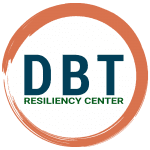DBT FOR TEENS
TEEN DBT PROGRAM
The Teen DBT Program is based on the “DBT Skills Manual for Adolescents” by Rathus and Miller (2015).
TEEN 24 WEEK PROGRAM
(4-6 Weeks)
GOALS
- Orient to DBT
- Identify Goals
- Enhance Motivation and Commitment
INTERVENTIONS
- Individual DBT
- Family DBT
- DBT Consultation Team
Commitment, Safety, and Stability
TARGETS
- Life-Threatening Behaviours
- Serious Therapy-Interfering Behaviours
- Severe Quality-of-Life Interfering Behaviors
INTERVENTIONS
- Individual DBT
- Multi-Family Skills Training
- Family DBT
- Phone Coaching
- DBT Consultation Team
- Additional Services (As Needed)
.
Symptom Reduction
TARGETS
- Trauma/PTSD
- Eating Disorders
- Anxiety Disorders
- Mood Disorders
INTERVENTIONS
- Individual DBT
- Multi-Family Skills Training
- Family DBT
- Phone Coaching
- DBT Consultation Team
- Additional Services (As Needed)
REACH (Regulating Emotions Through Acceptance and Change)
TARGETS
- Low Self-Esteem
- Relationship Difficulties
- Difficulty With Problem Solving
- Inadequate Quality of Life
INTERVENTIONS
- Parent Skills Training
- Individual DBT
- REACh Skills Training
- DBT Consultation Team
- Additional Services as Needed
SUICIDE AND SELF-INJURY
A dialectical approach aims to achieve a synthesis among seemingly opposite positions. A core “dialectical dilemma” in DBT is the need to combine acceptance and change.
DBT teaches us that hospitalization is avoided whenever possible. DBT is very similar to a rehabilitative model. It suggests it is most effective to keep individuals in their stressful environments and help them cope with life as it is.
Individuals are not less likely to attempt suicide if they are hospitalized.
In the DBT Program at DBTRC, acute hospitalization is extremely rare (i.e., < 5 participant/year) even for individuals who experience Target 1 Behaviors such as suicidal ideation and self-harm.
To date, there is no empirical data to suggest that acute inpatient hospitalization is effective in reducing suicide risk, even for individuals considered “high risk.”
DISCOVER HOW DBT CAN HELP
Whether you’re looking to find help for your hyper-reactive child or you yourself are seeking freedom from overwhelming emotions, dialectical behavioral therapy at the DBT Resiliency Center in Tucson, AZ can help. Get in touch with us today to learn more about our DBT therapy.
